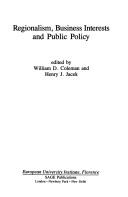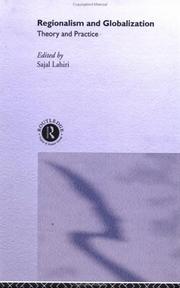| Listing 1 - 10 of 15 | << page >> |
Sort by
|
Book
ISBN: 9780674283701 Year: 2013 Publisher: Cambridge, MA
Abstract | Keywords | Export | Availability | Bookmark
 Loading...
Loading...Choose an application
- Reference Manager
- EndNote
- RefWorks (Direct export to RefWorks)
Book
ISBN: 1852789956 9781852789954 Year: 1995 Publisher: Aldershot Elgar
Abstract | Keywords | Export | Availability | Bookmark
 Loading...
Loading...Choose an application
- Reference Manager
- EndNote
- RefWorks (Direct export to RefWorks)
Economic schools --- anno 1700-1799 --- Economics --- History --- Philosophy. --- Economics - History - 18th century. --- Economics - Philosophy.
Book
ISSN: 19137494 ISBN: 1283245612 9786613245618 0774820195 9780774820196 9781283245616 9780774820172 0774820179 9780774820189 9780774820202 0774820187 Year: 2011 Publisher: Vancouver UBC Press
Abstract | Keywords | Export | Availability | Bookmark
 Loading...
Loading...Choose an application
- Reference Manager
- EndNote
- RefWorks (Direct export to RefWorks)
Autonomy. --- Law and globalization. --- Globalization --- Intellectual property. --- Indigenous peoples --- Intellectual property --- IP (Intellectual property) --- Proprietary rights --- Rights, Proprietary --- Intangible property --- Independence --- Self-government --- International law --- Political science --- Sovereignty --- Globalization and law --- Global cities --- Globalisation --- Internationalization --- International relations --- Anti-globalization movement --- Political aspects. --- Land tenure. --- Law and legislation --- Law and globalization --- Autonomy --- Political aspects --- Land tenure --- Ethnology --- Globalization - Political aspects --- Indigenous peoples - Land tenure
Multi
ISBN: 9780128011577 0128011572 0128008865 9780128008867 Year: 2016 Publisher: [London] Elsevier Academic Press
Abstract | Keywords | Export | Availability | Bookmark
 Loading...
Loading...Choose an application
- Reference Manager
- EndNote
- RefWorks (Direct export to RefWorks)
Diagnostic Molecular Pathology: A Guide to Applied Molecular Testing is organized around disease types (genetic disease, infectious disease, neoplastic disease, among others). In each section, the authors provide background on disease mechanisms and describe how laboratory testing is built on knowledge of these mechanisms. Sections are dedicated to general methodologies employed in testing (to convey the concepts reflected in the methods), and specific description of how these methods can be applied and are applied to specific diseases are described. The book does not present molecular methods in isolation, but considers how other evidence (symptoms, radiology or other imaging, or other clinical tests) is used to guide the selection of molecular tests or how these other data are used in conjunction with molecular tests to make diagnoses (or otherwise contribute to clinical workup). In addition, final chapters look to the future (new technologies, new approaches) of applied molecular pathology and how discovery-based research will yield new and useful biomarkers and tests. Diagnostic Molecular Pathology: A Guide to Applied Molecular Testing contains exercises to test readers on their understanding of how molecular diagnostic tests are utilized and the value of the information that can be obtained in the context of the patient workup. Readers are directed to an ancillary website that contains supplementary materials in the form of exercises where decision trees can be employed to simulate actual clinical decisions.

ISBN: 0803982275 0803982720 Year: 1989 Publisher: London Newbury Park Sage Publications
Abstract | Keywords | Export | Availability | Bookmark
 Loading...
Loading...Choose an application
- Reference Manager
- EndNote
- RefWorks (Direct export to RefWorks)
Economic geography --- Business and politics --- Lobbying --- Regionalism --- Professional associations --- Affaires et politique --- Lobby --- Régionalisme --- Associations professionnelles --- 323.17 --- 323.22 --- #SBIB:324H44 --- Autonomie. Regionalisme. Taalstrijd. Separatisme. Streven naar nationale autonomie. Zelfbeschikkingsrecht --- Kritische ingesteldheid tegenover de staat. Kritiek op de staat. Politieke aktiegroepen. Contestatie. Dissidenten. Maatschappijkritiek. Ontevredenheid, onrust, vetrouwenskrisis in politiek --- Politieke structuren: drukkingsgroepen, lobbying --- 323.22 Kritische ingesteldheid tegenover de staat. Kritiek op de staat. Politieke aktiegroepen. Contestatie. Dissidenten. Maatschappijkritiek. Ontevredenheid, onrust, vetrouwenskrisis in politiek --- 323.17 Autonomie. Regionalisme. Taalstrijd. Separatisme. Streven naar nationale autonomie. Zelfbeschikkingsrecht --- Régionalisme --- Trade associations --- Business associations --- Industrial associations --- Trade and professional associations --- Associations, institutions, etc. --- Human geography --- Nationalism --- Interregionalism --- Persuasion (Psychology) --- Politics, Practical --- Pressure groups --- Business --- Politics and business --- Political business cycles --- Political aspects --- North America --- Europe --- Trade and professional associations - Europe. --- Trade and professional associations - North America. --- Business and politics - Europe. --- Business and politics - North America. --- Lobbying - Europe. --- Lobbying - North America. --- Regionalism - Europe. --- Regionalism - North America.

ISBN: 0415220750 113459951X 9786612372902 020318341X 0203274571 0429229356 1134599528 9780203274576 9781134716272 1134716273 9781134716289 1134716281 9780203058350 0203058356 9781134716234 9780415162470 9780415162487 1282372904 Year: 2002 Publisher: London New York Routledge
Abstract | Keywords | Export | Availability | Bookmark
 Loading...
Loading...Choose an application
- Reference Manager
- EndNote
- RefWorks (Direct export to RefWorks)
This volume brings together articles on three primary elements of globalization: multilateralism, regionalism and unilateralism. Expert contributors investigate the substantive issues of commodity and factor trade, capital movements and monetary and fiscal policies, from both theoretical and empirical perspectives.
339 --- 339.96 --- Globalization --- International economic integration --- International trade --- Regionalism --- Human geography --- Nationalism --- Interregionalism --- External trade --- Foreign commerce --- Foreign trade --- Global commerce --- Global trade --- Trade, International --- World trade --- Commerce --- International economic relations --- Non-traded goods --- Common markets --- Economic integration, International --- Economic union --- Global cities --- Globalisation --- Internationalization --- International relations --- Anti-globalization movement --- 339.96 Ontwikkelingshulp. Ontwikkelingssamenwerking. Ontwikkelingsproblematiek --- Ontwikkelingshulp. Ontwikkelingssamenwerking. Ontwikkelingsproblematiek --- 339 Handel. Internationale economische betrekkingen. Wereldeconomie --binnenlandse als buitenlandse handel zie ook {339.3} en {339.5} --- Handel. Internationale economische betrekkingen. Wereldeconomie --binnenlandse als buitenlandse handel zie ook {339.3} en {339.5} --- Integration, International economic --- Markets, Common --- Union, Economic --- 339 Handel. Internationale economische betrekkingen. Wereldeconomie --binnenlandse als buitenlandse handel; zie ook {339.3} en {339.5} --- Handel. Internationale economische betrekkingen. Wereldeconomie --binnenlandse als buitenlandse handel; zie ook {339.3} en {339.5} --- International economic integration. --- International trade. --- Regionalism. --- Globalization.
Book
ISBN: 0128027878 0128027614 9780128027875 9780128027615 1351091670 Year: 2018 Publisher: London, United Kingdom
Abstract | Keywords | Export | Availability | Bookmark
 Loading...
Loading...Choose an application
- Reference Manager
- EndNote
- RefWorks (Direct export to RefWorks)
As the molecular basis of human disease becomes better characterized, and the implications for understanding the molecular basis of disease becomes realized through improved diagnostics and treatment, Molecular Pathology, Second Edition stands out as the most comprehensive textbook where molecular mechanisms represent the focus. It is uniquely concerned with the molecular basis of major human diseases and disease processes, presented in the context of traditional pathology, with implications for translational molecular medicine. The Second Edition of Molecular Pathology has been thoroughly updated to reflect seven years of exponential changes in the fields of genetics, molecular, and cell biology which molecular pathology translates in the practice of molecular medicine. The textbook is intended to serve as a multi-use textbook that would be appropriate as a classroom teaching tool for biomedical graduate students, medical students, allied health students, and others (such as advanced undergraduates). Further, this textbook will be valuable for pathology residents and other postdoctoral fellows that desire to advance their understanding of molecular mechanisms of disease beyond what they learned in medical/graduate school. In addition, this textbook is useful as a reference book for practicing basic scientists and physician scientists that perform disease-related basic science and translational research, who require a ready information resource on the molecular basis of various human diseases and disease states. Explores the principles and practice of molecular pathology: molecular pathogenesis, molecular mechanisms of disease, and how the molecular pathogenesis of disease parallels the evolution of the disease. Explains the practice of "molecular medicine" and the translational aspects of molecular pathology Teaches from the perspective of "integrative systems biology".
Pathology, Molecular. --- Molecular biology. --- Molecular biochemistry --- Molecular biophysics --- Biochemistry --- Biophysics --- Biomolecules --- Systems biology --- Molecular pathology --- Molecular biology --- Physiology, Pathological
Book
ISBN: 1920942491 1920942505 9781920942502 9781920942496 Year: 2006 Publisher: Canberra ANU Press
Abstract | Keywords | Export | Availability | Bookmark
 Loading...
Loading...Choose an application
- Reference Manager
- EndNote
- RefWorks (Direct export to RefWorks)
This book tells the story of four men - L.F.Giblin, J.B. Brigden, D.B.Copland, and Roland Wilson - who, in 1920s Tasmania, formed a personal and intellectual bond that was to prove a pivot of economic thought, policy-making and institution-building in mid-century Australia.
Economists --- Social scientists --- australia --- economists --- John Maynard Keynes
Book
ISBN: 1283335506 9786613335500 0774817615 9780774817615 9781283335508 9780774817608 0774817607 9780774817592 0774817593 Year: 2010 Publisher: Vancouver, BC
Abstract | Keywords | Export | Availability | Bookmark
 Loading...
Loading...Choose an application
- Reference Manager
- EndNote
- RefWorks (Direct export to RefWorks)
Globalization has challenged concepts such as local culture and cultural autonomy. And the rampant commodification of cultural products has challenged the way we define culture itself. Have these developments transformed the relationship between culture and autonomy? Have traditional notions of cultural autonomy been recast? Cultural Autonomy showcases the work of scholars who are exploring new ways of understanding the critical issue of globalization and culture. By defining culture broadly � as a set of ideas or practices that range from skateboarding to the work of public intellectuals such as Edward Said � they trace how issues of cultural autonomy have played out in various areas, including the human rights and environmental movements and among indigenous peoples. Although the contributors focus on the marginalized issue of autonomy, they offer a balanced perspective � one that reveals that globalization has not only limited but also created new forms of cultural autonomy.
Culture and globalization. --- Politics and culture. --- Autonomy.
Book
ISBN: 9781442659711 Year: 1989 Publisher: Toronto
Abstract | Keywords | Export | Availability | Bookmark
 Loading...
Loading...Choose an application
- Reference Manager
- EndNote
- RefWorks (Direct export to RefWorks)
| Listing 1 - 10 of 15 | << page >> |
Sort by
|

 Search
Search Feedback
Feedback About UniCat
About UniCat  Help
Help News
News